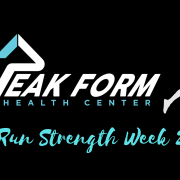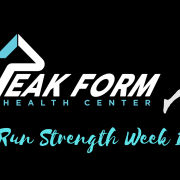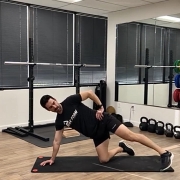Strength Training for Runners | Week 2
/in Coaching/by Dr. Travis RoseThis is week 2 of our 6 week beginner running strength training program. If you are completely new to strength training, check out our first beginner strength training for running video. It introduces many of the movements that we use throughout the 6 beginner strength training for running videos. This follow along workout requires no equipment which makes it perfect for at home strength training for runners.
The video is only 30 minutes and includes a warm up, core activation, and a 3 round circuit of strength exercises. These videos are great for marathon, half marathon, 10k, and 5k strength training. If you are starting a couch to 5k training plan, these workouts will help avoid potential overuse injuries from running. Adding strength workouts for running to your running plan may seem daunting but you can see benefits by performing this 30 minute strength workout just twice per week.
Strength Training for Runners | One on One Training
If you are looking for a specific strength training plan to supplement your running, we can help you. We offer one on one strength training to help our patients stay injury free and improve performance! Individualized strength training is one of the aspects most runners lack with their training plan. Our coaches are experts in preventing running related injuries through proper strength training and run planning. Fill out our questionnaire below to initiate a consultation with one of our coaches.
Written Workout
- Week 2 30 seconds each
- Jumping Jacks
- Toe Walk
- Heel Walk
- Step overs The
- A Skip
- Figure 4 run
- Core
- Glute Bridge with 10 impulses at end
- Single leg with 5 impulses at end
- Side Plank 54321
- Hamstring Bridge 5, 5 marches
- Runners plank
- 3 Round Circuit
- Split Squats
- Push up
- Kickstand
- Prone W to reach up
- Step up
- Soleus Raise
- Cool Down
- Cowboy Sit
- Psoas Stretch Kneeling
- Frog Stretch
Beginner Strength Training for Running | Week 1
/in Coaching/by Dr. Travis RoseIn this beginner strength training for running workout, we go through strength movements that help improve running performance and prevent injury, all in just 30 minutes. The goal with this beginner strength workout for running is to introduce strength training at an approachable level. This strength training for runners follow along requires no equipment which makes it perfect for at home strength training for runners.
The video is a 30 minute strength training for runners including warm up, core activation, and a 3 round circuit of strength exercises. These videos are great for marathon, half marathon, 10k, and 5k strength training. If you are starting a couch to 5k training plan, these workouts will help avoid potential overuse injuries from running.
Subscribe to Our Youtube Channel
Each, week, we will expand on these at home workouts for runners by adding new exercises, and/or added resistance to the exercises. After the beginner series, we will continue to post weekly run, triathlon, and cycling workouts. If you are completely new to run strength training, go at your own pace, perform less reps, and take extra rest if you feel you need a break. Stick with this running strength training plan for 6 weeks and you will begin to see results! We recommend performing these 30 minute run strength workouts twice per week.
Custom Strength Training and Running Plans
We find value in our free online platform for running strength training. If you are interested in a more personal approach, we offer one on one strength training for running with a detailed plan to compliment your running goals. Our base plan offers a 1x per month meeting either in person or virtually through Zoom where we will progress and plan your strength routine around your run training plan. If you are interested please follow the link below to get started! We also offer triathlon specific training.
Written Beginner Strength Training for Running Plan:
- Warm Up ~30 seconds each
- Jumping Jacks
- Fence Step Overs
- Toe Walk
- Heel Walk
- Leg Swings
- Core 1 round
- Glute Bridge
- Single leg Glute bridge
- Side Plank
- Hamstring Bridge
- High plank shoulder taps
- Side stance hip abduction
- Main Strength exercises: 3 rounds
- Body Weight Squats
- Push up Kickstand
- Prone W/T 54321; reps then equal hold descending
- Reverse Lunge
- Calf Raises
- Cool Down
- Glute Stretch Figure 4 Piriformis
- Couch Stretch or Side lying quad
Beginner Strength Training for Runners | 6 Week Series
/in Coaching/by Dr. Travis RoseThis is our 6 week beginner strength training for runners. These workouts are designed to introduce runners to common warm up, core strength, and strength training exercises. When strength training is performed consistently, the chance of injury decreases while running performance increases. These beginner strength training for runners workouts are primarily meant for endurance runners and triathletes. Click the video below to start our free strength training for running series on YouTube.
Strength Workouts for Runners at Home
This beginner strength workouts for runners can be performed with no equipment. You will have the opportunity to use resistance bands, kettlebells, and dumbbells as the weeks progress. All workouts are 30 minutes and we recommend performing 2x per week. Perform the week 1 strength training for runners workout twice the first week. Then progress to the second week, 2x for the week, etc. This will allow for 12 workouts over a 6 week period and should help build confidence to advance to our intermediate level strength workouts for runners.
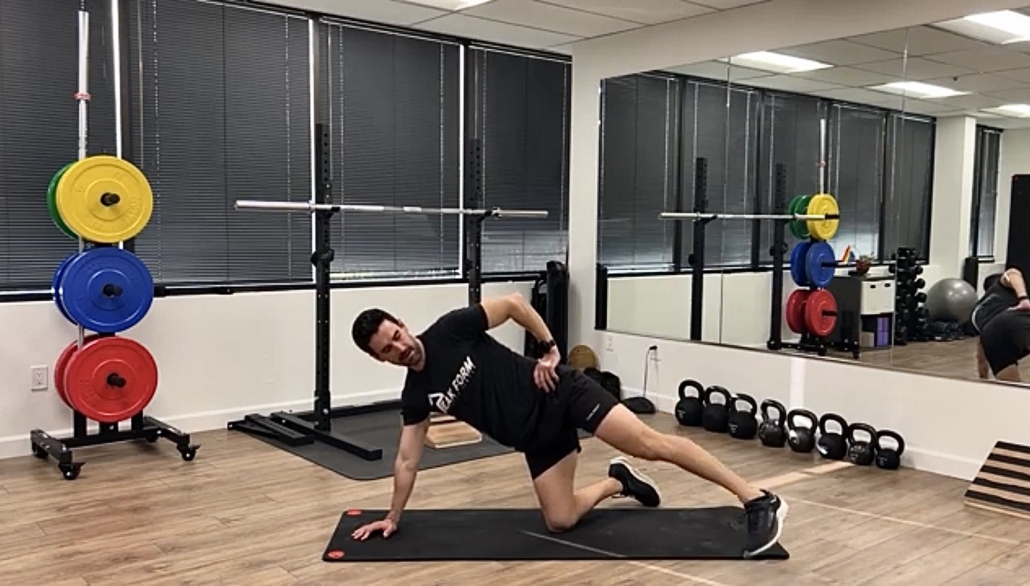
One on One Coaching
We find tremendous value in the free beginner strength training for runners workouts online. However, we also understand it is not specific to an individual. If you are interested in individualized coaching, our sports chiropractors are trained to design a proper periodized strength training plan. We specialize in working with running athletes, triathletes, patients in chronic pain, and patients who want to improve their strength and fitness capacity for life! If you are interested in the opportunity of working with one of our coaches, please contact our office. Our phone number is 619-818-4306 or email us at frontdesk@peakformhealthcenter.com. Mention you are interested in coaching to set up a free consultation. We offer in-person training as well as virtual training options for our patients.
Training with Heart Rate
/in Coaching, Training/by Dr. Kevin RoseEndurance training is a popular form of exercise that involves sustained physical activity over an extended period of time. Training with heart rate is commonly used by athletes, fitness enthusiasts, and health-conscious individuals to improve their cardiovascular health, build endurance, and enhance their overall fitness levels. One of the essential tools for optimizing endurance training is heart rate monitoring. Keep reading as we explore the utility of heart rate monitoring in endurance training.

What is heart rate monitoring?
Heart rate monitoring involves the measurement of heart rate during exercise. It can be done using various devices, including heart rate monitors, fitness trackers, and smartwatches. The most common way to measure heart rate is through the use of a chest strap or optical sensor that is worn on the wrist. These devices detect the electrical signals produced by the heart, which can be used to calculate heart rate. For most people, the most accurate sensor is a chest strap sensor placed right over the level of the heart.
Why is heart rate monitoring important in endurance training?
Heart rate monitoring is important in endurance exercises because it provides valuable information about how hard the body is working during exercise. Athletes are able to adjust their intensity levels to ensure they are training at the appropriate level for their fitness goals. Here are some of the key benefits of heart rate monitoring in endurance training:
Accurate assessment of intensity levels:
Heart rate monitoring provides an accurate assessment of how hard the body is working during exercise. This information can be used to ensure that the athlete is training at the appropriate intensity level for their fitness goals. By monitoring heart rate, athletes can ensure that they are not working too hard, which can lead to burnout, fatigue, and injury, or not hard enough, which may not produce the desired training effect.
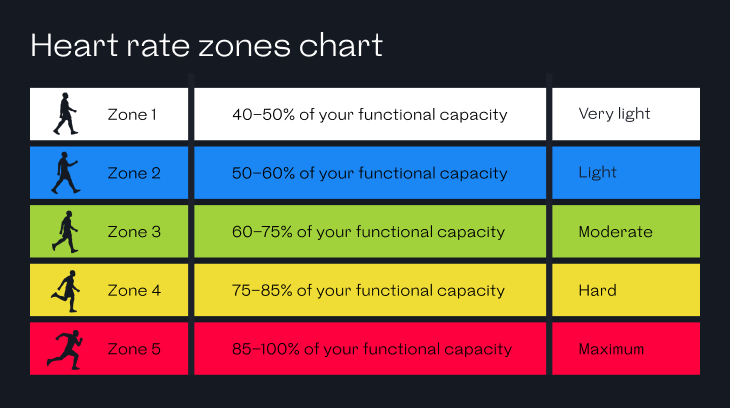
Optimization of training:
Heart rate monitoring can help athletes optimize their training by providing feedback on their progress. By monitoring heart rate during exercise, athletes can track their performance and make adjustments to their exercise plan as needed. For example, if an athlete is meant to perform an endurance ride for 3 hours at a zone 2 heart rate, they will know exactly what heart rate range to be at for those specific workout goals. In that same example, if an athlete’s heart rate is consistently higher than their zone 2 target range, they may need to adjust their intensity to avoid eventual overtraining.
Prevention of overtraining:

Overtraining is a common problem among athletes, particularly in endurance training. Heart rate monitoring can help prevent overtraining by providing feedback on the athlete’s physiological response to exercise. By monitoring heart rate, athletes can ensure that they are not pushing themselves too hard and are allowing enough time for recovery between exercise sessions.
This can also be detected through monitoring daily resting heart rate. If resting heart rate is 10-15 beats higher than normal, that can be a sign that the body is not sufficiently recovered and more rest is needed. Another concept that will be explored in a future post is heart rate variability. Heart rate variability (HRV) is the measure of time fluctuations between heartbeats, a low HRV is a sign of excessive stress to our bodies.
Personalization of training:
Heart rate monitoring can help athletes personalize their training by providing information on their individual response to exercise. Athletes can use heart rate monitoring to identify their individual training zones and adjust their intensity accordingly. This can help athletes achieve their fitness goals more efficiently and effectively.
A typical way to personalize heart rate zones is through testing, such as running an all out 5k or 10k race. Another way is to run for 30 minutes as hard as possible, using the last 20 minutes as the heart rate data. In the past, the heart rate formula 220-age = maximal age related heart rate, was used heavily to determine zones. This method is outdated, is not personalized to each athlete, and should not be used in training.
Conclusion:
Heart rate monitoring is an essential tool for optimizing endurance training. By providing accurate information on the body’s physiological response to exercise, heart rate monitoring can help athletes adjust their intensity levels, optimize their training, prevent overtraining, and personalize their training to achieve their fitness goals. With the help of heart rate monitoring, athletes can improve their endurance, build cardiovascular health, and enhance their overall fitness levels.
PEAK FORM NEWSLETTER SIGN UP
Our Office


